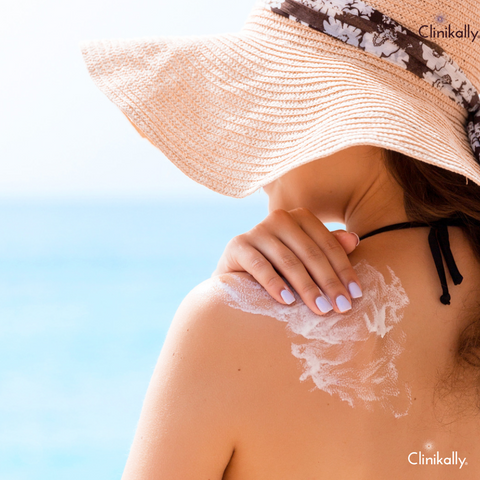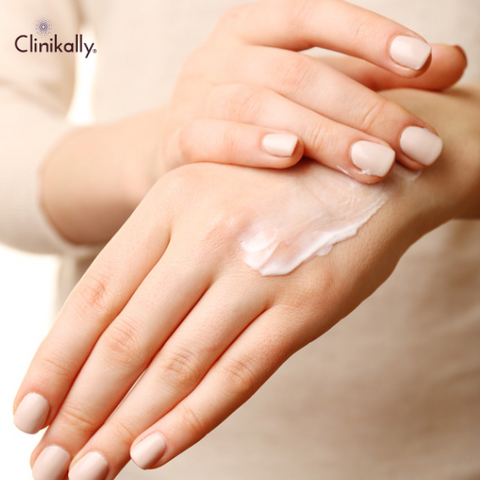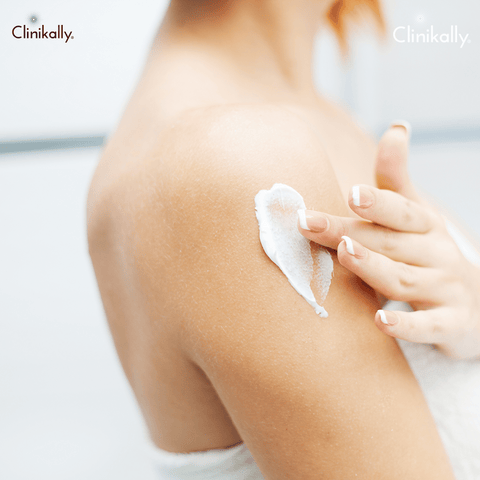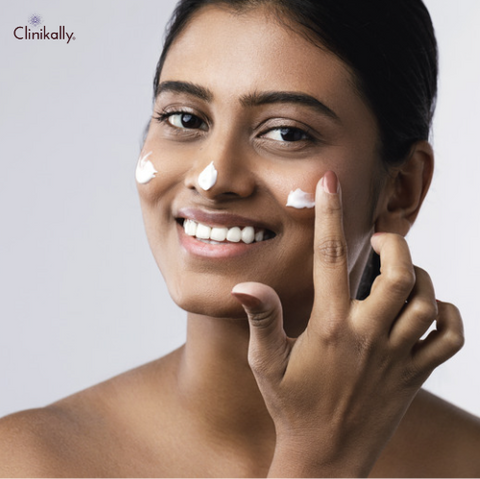Sun protection has become an essential part of our daily skin care routine, and with so many sunscreen options on the market, it's important to understand the safety concerns and environmental impact of certain ingredients. In this blog, we'll delve into oxybenzone, a widely used chemical in sunscreens, exploring its role in UV protection and the growing debate around its safety.
Understanding Oxybenzone and its Role in Sunscreen

Oxybenzone is a chemical compound that is commonly found in sunscreen and other personal care products that offer protection from the sun's harmful UV rays. While oxybenzone is known for its ability to effectively absorb and block UV rays, it has also become a topic of controversy in recent years due to concerns about its potential impact on both human health and the environment. In this article, we'll take a closer look at oxybenzone, exploring its chemical properties, how it works in sunscreen, and the potential risks and benefits associated with its use. By gaining a better understanding of oxybenzone and its role in sunscreen, you can make more informed decisions about how to protect yourself from the harmful effects of the sun.
What is Oxybenzone?
Oxybenzone, also known as benzophenone-3, is an organic compound that has been widely used in sunscreens since the 1970s. This chemical compound absorbs UVA and UVB rays, providing protection against the sun's harmful effects on our skin. Oxybenzone is often used in conjunction with other chemical filters, like avobenzone, to offer broad-spectrum protection against both UVA and UVB rays.
How Oxybenzone Provides UV Protection
Oxybenzone works by absorbing the sun's ultraviolet (UV) radiation and converting it into less harmful heat. This process helps prevent sunburn, premature skin aging, and skin cancer caused by excessive sun exposure. When combined with other chemical filters, oxybenzone offers enhanced protection against a wider range of the sun's harmful rays.
Chemical Filters vs. Mineral Sunscreens
Sunscreen products typically fall into two categories: chemical filters and mineral sunscreens. Chemical filters, like oxybenzone, work by absorbing the sun's UV radiation, while mineral sunscreens, such as titanium dioxide and zinc oxide, work by reflecting and scattering the UV rays away from the skin. Both types of sunscreens offer protection, but the growing concerns around oxybenzone's safety have led many consumers to consider alternatives.
Debating Oxybenzone's Safety for Humans and the Environment

Oxybenzone is a chemical ingredient commonly found in sunscreen and other personal care products. While it has long been considered an effective means of protecting the skin from the harmful effects of the sun's UV rays, recent studies have raised concerns about the safety of oxybenzone for both human health and the environment. This has sparked a debate among scientists, regulators, and the public at large about the risks and benefits of using oxybenzone in personal care products. In this article, we'll explore the various arguments and perspectives involved in the ongoing debate over oxybenzone's safety, so you can make an informed decision about your own sun protection needs.
Allergic Reactions and Skin Irritation
While oxybenzone is generally considered safe for most people, some individuals may experience allergic reactions or skin irritation. Symptoms can include redness, itching, and swelling. Those with sensitive skin or known allergies to chemical filters may want to opt for alternative sun protection options.
Endocrine Disruption Controversy
Oxybenzone has been the subject of controversy due to potential endocrine-disrupting effects. Some studies have suggested that it may interfere with the body's hormone system, leading to developmental, reproductive, and other health issues. However, the FDA and other regulatory bodies have stated that the evidence is inconclusive, and more research is needed to determine the true extent of these potential risks.
Environmental Impact: Coral Reef Damage
Oxybenzone's environmental impact is another growing concern. Research has shown that the chemical can contribute to coral bleaching and damage coral reefs, even at low concentrations. This has led to bans on oxybenzone-containing sunscreens in some regions, such as Hawaii, and has driven the demand for more environmentally friendly alternatives.
Regulatory Perspectives on Oxybenzone

Oxybenzone is a commonly used ingredient in sunscreen and other personal care products that offer sun protection. However, in recent years, concerns have been raised about the safety of oxybenzone, both for human health and for the environment. As a result, regulatory agencies around the world have begun to take a closer look at the use of oxybenzone in personal care products. In this article, we'll take a closer look at the regulatory perspectives on oxybenzone, exploring the different approaches taken by different countries and organizations, as well as the latest developments in the ongoing debate over the safety of this controversial ingredient.
FDA Stance on Oxybenzone Safety
The FDA currently considers oxybenzone safe for use in sunscreens, citing the lack of conclusive evidence regarding its potential health risks. However, they have acknowledged the need for more research on the topic and have called for additional data to ensure the continued safety of consumers.
European Regulations and Restrictions
In Europe, oxybenzone is allowed in sunscreens but with certain restrictions. The European Chemical Agency (ECHA) has classified oxybenzone as a potential endocrine disruptor, and the European Union (EU) has set a maximum concentration of 6% in sunscreen products. This regulatory approach reflects the ongoing debate around oxybenzone's safety, with European authorities opting for a more precautionary approach.
Local Bans and Consumer Advocacy
As concerns around oxybenzone's environmental impact grow, some local governments have taken action to ban or restrict the use of the chemical in sunscreens. Hawaii, for example, banned the sale of sunscreens containing oxybenzone and octinoxate in 2018 to protect its coral reefs. Consumer advocacy groups have also raised awareness about the potential risks associated with oxybenzone, pushing for more research and encouraging consumers to choose alternatives.
Oxybenzone Alternatives for Sun Protection

Oxybenzone is a common ingredient in many sunscreens, known for its ability to absorb UV rays and protect the skin from sun damage. However, in recent years, concerns have been raised about the potential negative effects of oxybenzone on both human health and the environment. If you're looking for an oxybenzone-free alternative for sun protection, you're in luck. In this article, we'll explore some of the best oxybenzone alternatives available on the market, so you can make an informed decision about how to protect your skin without compromising your health or the environment.
Avobenzone: A Chemical Filter Option
Avobenzone is another chemical filter that provides broad-spectrum protection against UVA and UVB rays. Unlike oxybenzone, avobenzone has not been linked to endocrine disruption or coral reef damage, making it a safer alternative for those concerned about oxybenzone's potential risks. However, avobenzone can be less photostable, meaning it may degrade more quickly when exposed to sunlight. To counter this, some sunscreens combine avobenzone with photo stabilizing ingredients.
Mineral Sunscreens: Titanium Dioxide and Zinc Oxide
Mineral sunscreens, containing either titanium dioxide or zinc oxide, offer an alternative to chemical filters. These ingredients work by reflecting and scattering UV rays away from the skin, providing broad-spectrum protection. Mineral sunscreens are less likely to cause allergic reactions or skin irritation and are considered more environmentally friendly, as they do not contribute to coral reef damage.
Broad-Spectrum Protection and SPF Levels
When choosing a sunscreen, it's important to look for broad-spectrum protection, which guards against both UVA and UVB rays. The sun protection factor (SPF) level indicates the degree of protection against UVB rays. Higher SPF values provide greater protection, but it's crucial to remember that no sunscreen can block 100% of the sun's rays. The American Academy of Dermatology recommends using a sunscreen with an SPF of 30 or higher.
Tips for Choosing the Right Sunscreen

Protecting your skin from the harmful effects of the sun is important, especially during the summer months when the UV rays are at their strongest. Sunscreen is one of the most effective ways to protect your skin, but with so many options on the market, it can be overwhelming to choose the right one for you. In this article, we'll provide you with some tips for choosing the right sunscreen, so you can enjoy your time in the sun without compromising your skin's health.
Identifying Oxybenzone-free Products
To avoid oxybenzone, carefully read the ingredients list on sunscreen products, looking for oxybenzone or benzophenone-3. Opt for products containing alternative chemical filters, like avobenzone, or choose mineral sunscreens with titanium dioxide or zinc oxide.
Skin Type Considerations
When selecting a sunscreen, consider your skin type and specific needs. Those with sensitive skin or allergies may prefer mineral sunscreens, while individuals with oily skin might opt for oil-free or non-comedogenic formulas. If you have dry skin, look for sunscreens that include moisturizing ingredients.
Sunscreen Application Best Practices
Proper sunscreen application is essential for effective sun protection. Apply a generous amount of sunscreen to all exposed skin areas 15 minutes before sun exposure, and reapply every two hours, or after swimming or sweating. Remember to use sunscreen even on cloudy days, as UV rays can still penetrate cloud cover.
Conclusion: Making Informed Sunscreen Choices

Understanding the potential risks and benefits of oxybenzone in sunscreens is crucial for making informed choices about sun protection. While the FDA and other regulatory bodies currently consider oxybenzone safe, ongoing research and concerns about its potential effects on human health and the environment warrant caution. By considering alternative sun protection options like avobenzone, titanium dioxide, and zinc oxide, consumers can make more informed decisions and protect their skin and the environment. Remember to choose broad-spectrum sunscreens, consider your skin type, and follow best practices for sunscreen application to ensure you stay protected while enjoying the sun.
















